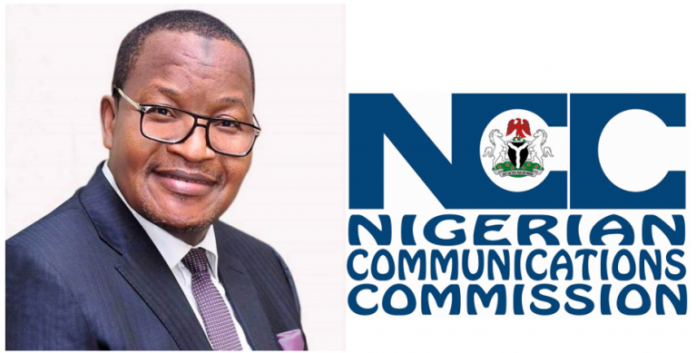How We Have Leveraged ICT For National Development – Danbatta
TECH DIGEST – The Executive Vice Chairman of the Nigerian Communications Commission (NCC), Prof. Umar Danbatta has highlighted how the telecom regulator has leveraged some of the policies of the Commission for national development.
One of such policies is the NCC’s Strategic Management Plan (SMP 2020-2024 or “ASPIRE 2024”), which consolidated on the Strategic Vision Plan and 8-Point Agenda.
Delivering a Keynote Address at the Virtual 3rd Discourse Series of the Advocaat Law Practice with the theme: “Powering the Fourth Industrial Revolution in Nigeria”, Danbatta said NCC has responded to the policy goals to harness the immense socio-economic benefits of ICT for national development.
“As a Commission in charge of regulating telecommunications and other related services, we have done well by leveraging ICT for national development,” Danbatta, who was represented at the event by the Executive Commissioner, Stakeholder Management, NCC, Barr. Adeleke Adewolu said.
He disclosed NCC has recorded a number of significant achievements to ensure that ICT infrastructure is up to the standard necessary to provide ubiquitous broadband services in Nigeria, which will ultimately, ensure growth, inclusiveness and sustainability.
These significant achievements, according to the NCC Boss include the licensing of six (6) infrastructure companies (InfraCos) to speed up the deployment of broadband infrastructure throughout Nigeria; and the provision of training and supporting public institutions with ICT interventions like School Knowledge Centers and ADAPTI.
Others are the enhancement of physical infrastructure in the last five (5) years, which has seen the Commission expanding broadband penetration from 6% to 42.06 as at February 2021, reduction of access gap clusters from 207 to 114 and increase of Fibre Optic coverage from 47,000km to 54,725 km.
Also, Base Transceiver Stations for 3G and 4G deployments have increased from 30,000 to 53,460. The Commission has created a full-fledged department Digital Economy to support Federal Government’s Digital Economy agenda.
Funding of Telecom Research has been increased to N336.4m and has endowed four (4) Professorial Chairs. The Commission has also commenced requisite engagements on 5G deployments with licensees already carried out trials.
The Executive Vice Chairman of the Nigerian Communications Commission (NCC), Prof. Umar Danbatta has highlighted how the telecom regulator has leveraged some of the policies of the Commission for national development.
One of such policies is the NCC’s Strategic Management Plan (SMP 2020-2024 or “ASPIRE 2024”), which consolidated on the Strategic Vision Plan and 8-Point Agenda.
Delivering a Keynote Address at the Virtual 3rd Discourse Series of the Advocaat Law Practice with the theme: “Powering the Fourth Industrial Revolution in Nigeria”, Danbatta said NCC has responded to the policy goals to harness the immense socio-economic benefits of ICT for national development.
“As a Commission in charge of regulating telecommunications and other related services, we have done well by leveraging ICT for national development,” Danbatta, who was represented at the event by the Executive Commissioner, Stakeholder Management, NCC, Barr. Adeleke Adewolu said.
He disclosed NCC has recorded a number of significant achievements to ensure that ICT infrastructure is up to the standard necessary to provide ubiquitous broadband services in Nigeria, which will ultimately, ensure growth, inclusiveness and sustainability.
These significant achievements, according to the NCC Boss include the licensing of six (6) infrastructure companies (InfraCos) to speed up the deployment of broadband infrastructure throughout Nigeria; and the provision of training and supporting public institutions with ICT interventions like School Knowledge Centers and ADAPTI.
Others are the enhancement of physical infrastructure in the last five (5) years, which has seen the Commission expanding broadband penetration from 6% to 42.06 as of February 2021, reduction of access gap clusters from 207 to 114 and increase of Fibre Optic coverage from 47,000km to 54,725 km.
Also, Base Transceiver Stations for 3G and 4G deployments have increased from 30,000 to 53,460. The Commission has created a full-fledged department Digital Economy to support Federal Government’s Digital Economy agenda.
Funding of Telecom Research has been increased to N336.4m and has endowed four (4) Professorial Chairs. The Commission has also commenced requisite engagements on 5G deployments with licensees already carried out trials.
















